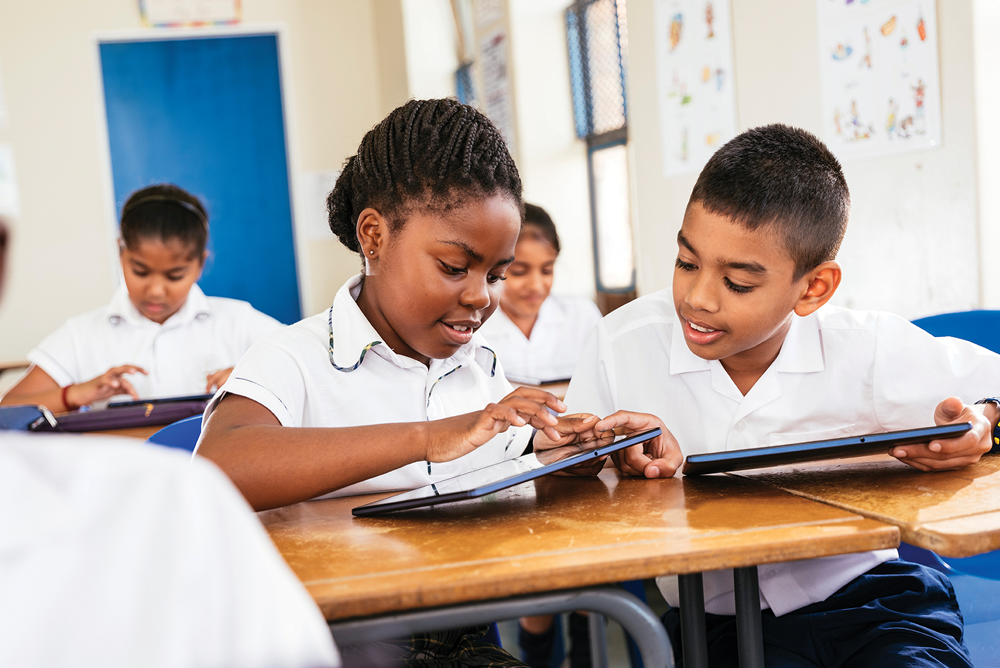Artificial Intelligence: can we codify inclusion?
One of the most important objectives in education is to prepare students for their future careers. Not only does this include skills training, but also developing the ethics and guidelines that will point the way for their careers ahead.

Over the last two decades, coding and programming have emerged as some of the most desirable skills for the future. In particular, machine learning and artificial intelligence (AI) have become major focus points. The question is, can tomorrow’s programming professionals help us to achieve greater inclusion?
Dr. Benadette Aineamani, Director of Product & Services at global education group Pearson Africa, points out that for Africa to reach its education goals by 2030, around 15 million new teachers will need to be trained. “It is possible that AI could indeed help the continent to achieve its education goals much more efficiently and promote greater inclusion throughout Africa.”
Dr. Aineamani believes that, to start, careful attention needs to be paid to the teaching and learning process. “We should be looking at the aspects of education that we as humans aren’t doing effectively, and how technology can help us to do better on these fronts. We see the best results where there is a clear need for technological interventions. AI can help to give educators a more detailed understanding of where children are struggling, identify trends and patterns, and help to develop better ways of breaking down and presenting educational content.”
She adds that it is also crucial to increase awareness of AI’s potential as a teaching tool among educators. “Simply having technology that solves the problem is not enough. You need teachers who understand what is available and how to use it. There are quite a few ways to ensure that teachers understand how to select and use AI in their classrooms, but I believe that the most effective way is through forming professional communities. Teachers and other professionals should network and communicate about what they are using and how they are achieving success. Teachers can also collaborate with programming professionals, by sharing their experiences and reviewing the content and contexts that are used in the AI tools, so that the tools developed for teaching and learning are inclusive.”
Ultimately, Dr. Aineamani points out that the potential for AI to solve Africa’s educational challenges is massive. “We definitely need more programming professionals who specialise in AI technology. Steps should be taken to ensure that the AI technology developed for teaching and learning is inclusive. Possible bias in the development process can be mitigated through extensive consultations with teachers, learners, parents and all other stakeholders in the education sector across various contexts, in the development process. In addition to that, we also need more people who are skilled at getting exposure for the solutions on offer, and who can help the end-users (educators) to utilise relevant AI to its fullest potential,” she concludes.
ABOUT THE AUTHOR
Dr Benadette Aineamani is the Director: Product and Services Director for Pearson Africa.
Benadette has over 10 years’ experience in teaching Mathematics and Science (In East Africa – Uganda, and Southern Africa – South Africa). She has trained Mathematics and Science teachers in South Africa, having obtained a number of qualifications in the field. Benadette completed her Doctor of Philosophy (PhD) degree in Mathematics and Mathematics Education at the University of the Witwatersrand, South Africa.
She has conducted numerous research in the African classroom, and written and presented research papers at a number of conferences, both locally: Annual Congress of the Association for Mathematics Education of South Africa (AMESA), and Southern Africa Association for Research in Mathematics, Science and Technology Education (SAARMSTE), and internationally: the International Mathematics Congress on Mathematical Education (ICME) held in Hamburg, Germany; International Conference on Interdisciplinary Social Sciences held in Hiroshima, Japan; Comparative and International Education Society (CIES), held in Mexico City amongst others.






Leave a Reply